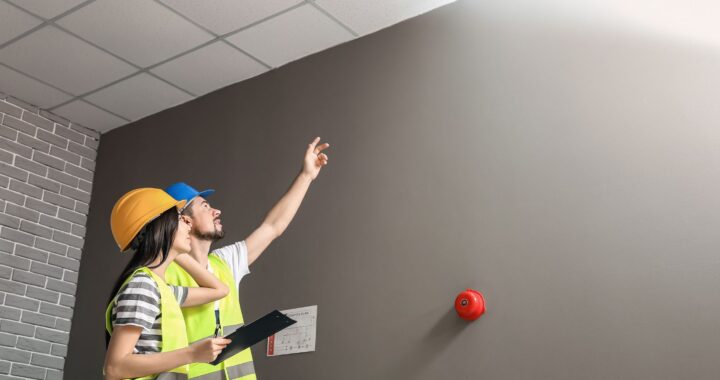Benefits of a Home Water Flow Sensor and How It Works

Ever wondered how much water flows through your pipes each day or if there’s a way to catch leaks before they become big problems?
A home water flow sensor might be just what you need. These devices help you monitor water usage, prevent leaks, and protect your home from potential water damage.
In this guide, we’ll dive into the benefits of a water flow sensor, explain how it works, and why it’s a smart investment for any homeowner.
What is a Home Water Flow Sensor?
A home water flow sensor is a device that monitors and measures the amount of water flowing through your plumbing system. Installed directly into your water line, this sensor keeps track of water flow rates, allowing you to see real-time water usage, detect leaks, and even set up automatic alerts if something unusual happens. For enhanced control over your water system, consider integrating a flologic water shut off system that works in conjunction with the flow sensor to prevent excessive water use and damage from leaks.
How a Water Flow Sensor Works
The water flow sensor measures water flow by using a small turbine or similar mechanism inside the device. Here’s a simplified breakdown of how it operates:
- Water Enters the Sensor: When water flows through your pipes, it enters the sensor and passes through a small turbine.
- Turbine Rotation: The flow of water causes the turbine to spin. The speed of this rotation is directly related to the flow rate.
- Data Transmission: The sensor then converts the turbine’s rotation into an electrical signal, which is transmitted to a connected smart home system or monitoring app.
- Flow Rate Monitoring: By analyzing these signals, the device calculates and displays your water flow rate in real-time.
In many cases, water flow sensors are connected to smart home systems that can alert you if the flow exceeds a preset threshold, such as during a potential leak. This functionality makes them especially useful for homeowners who want to save water and keep an eye on their plumbing.
Key Benefits of a Home Water Flow Sensor
Installing a home water flow sensor comes with several practical benefits that go beyond simple water monitoring. Let’s explore why it’s worth considering this device for your home.
Leak Detection and Prevention
One of the biggest benefits of a water flow sensor is its ability to detect leaks. Since it monitors water flow in real time, it can identify unusual water usage patterns that might indicate a leak. If there’s a sudden increase in water flow when all appliances are off, the sensor can alert you immediately, allowing you to take action before the leak causes extensive damage.
Lower Water Bills
A home water flow sensor helps you track your daily water usage, giving you insight into where you might be wasting water. This awareness can encourage you to adopt water-saving habits, like shorter showers or fixing leaks right away. With less wasted water, you’re likely to see a decrease in your monthly water bills.
Environmental Benefits
Reducing water waste isn’t just good for your wallet; it’s also beneficial for the environment.

Every gallon of water saved helps to conserve local water resources and reduce the strain on municipal water systems. With a water flow sensor installed, you’re making an eco-friendly choice by managing your water usage effectively.
Protects Against Major Water Damage
Leaks and burst pipes can lead to significant water damage in your home. With a water flow sensor, you’ll receive alerts as soon as abnormal water flow is detected, giving you the chance to shut off the water supply or call a plumber before the issue escalates. This early warning system can save you thousands of dollars in repair costs and prevent water damage to your home’s structure.
Smart Home Integration
Many water flow sensors are compatible with smart home systems, allowing you to monitor your water usage through an app on your smartphone. Some models even allow you to control water flow remotely, turning the water off if a leak is detected. This integration offers an added layer of convenience, especially if you’re away from home and need to manage your water usage from a distance.
Improved Home Value
Installing a home water flow sensor can be an attractive feature for potential homebuyers. Water conservation and smart home features are increasingly popular, and having this type of device installed can be a selling point. Buyers will appreciate the added protection against leaks and the potential for lower utility bills.
Types of Water Flow Sensors
There are several types of water flow sensors available for home use. Each has its features, and understanding them can help you choose the right option for your needs.
|
Type of Water Flow Sensor |
Description |
|
Turbine Flow Sensor |
Uses a spinning turbine to measure flow; ideal for home use |
|
Ultrasonic Flow Sensor |
Uses ultrasonic waves; accurate but more expensive |
|
Electromagnetic Flow Sensor |
Measures voltage change; suited for larger water systems |
|
Positive Displacement Sensor |
Measures specific water volumes; precise but costly |
Most homeowners opt for turbine flow sensors due to their affordability and reliability for residential plumbing systems. However, ultrasonic and electromagnetic sensors offer higher precision, which may be worth the investment for larger properties.
Choosing the Right Water Flow Sensor for Your Home
When shopping for a home water flow sensor, consider the following factors to ensure you’re choosing the right one for your needs:
Flow Rate and Pipe Size
Ensure that the sensor you select is compatible with the diameter of your pipes and can handle the flow rate typical for your household. Many sensors have a specific range, so be sure to check that your home’s water system falls within that range.
Smart Home Compatibility
If you already use a smart home system, look for a water flow sensor that can integrate with it. This will allow you to monitor water usage directly from your smart home app and receive notifications if there’s an issue. Some models also connect to voice-activated assistants like Alexa or Google Assistant for added convenience.
Installation Requirements
Some water flow sensors are simple to install and only require basic plumbing knowledge, while others may need a professional. Make sure to review installation requirements before purchasing to ensure it’s something you’re comfortable handling or that you have access to a professional installation.
Cost and Maintenance
Costs can vary widely, so set a budget based on your specific needs.

Some advanced water flow sensors offer additional features like automatic shutoff or advanced data tracking, which may be worth the higher price. Maintenance requirements should also be minimal, so choose a model that’s reliable and easy to maintain.
How to Maximize the Benefits of a Water Flow Sensor
To get the most out of your home water flow sensor, here are some tips that can help you maximize its benefits:
Set Usage Alerts
Many water flow sensors allow you to set up custom alerts. For example, you can receive notifications if your water usage exceeds a certain threshold. This helps you stay on top of your water consumption and prevent overuse.
Regularly Check Your Sensor for Accuracy
Testing your water flow sensor periodically ensures it’s functioning correctly. If you notice any discrepancies in your water usage or the alerts seem inaccurate, it may be time for recalibration or a quick check by a professional.
Monitor Your Water Usage Patterns
Review your monthly water usage reports to identify any unusual patterns or spikes. These reports can be particularly helpful in adjusting your habits and identifying areas where you can save water.
Use the Sensor as a Learning Tool
Your water flow sensor can also help you understand your daily water habits more. Use it as an educational tool to improve your water conservation efforts, teaching family members about the importance of saving water and reducing waste.
Conclusion
A home water flow sensor is a practical, valuable tool that offers multiple benefits for homeowners looking to save water, detect leaks, and prevent costly repairs. By providing real-time data on water flow, these sensors empower you to make smarter choices about your water usage. From lower water bills to added property protection, the advantages of having a water flow sensor far outweigh the initial setup costs.
When selecting a sensor, consider factors like smart home compatibility, installation requirements, and your household’s specific needs. Once installed, make the most of it by setting alerts, monitoring water usage, and using the data to optimize your habits. Investing in a water flow sensor is a proactive step towards a more water-conscious and efficient home, giving you peace of mind and potentially saving you money in the long run.

 Why You Should Test for Asbestos in Toronto Homes
Why You Should Test for Asbestos in Toronto Homes  Is Your Apartment Building Safe? Key Checks Every Resident Should Know
Is Your Apartment Building Safe? Key Checks Every Resident Should Know  Five Innovative Ways AI is Changing Home Security for the Better
Five Innovative Ways AI is Changing Home Security for the Better